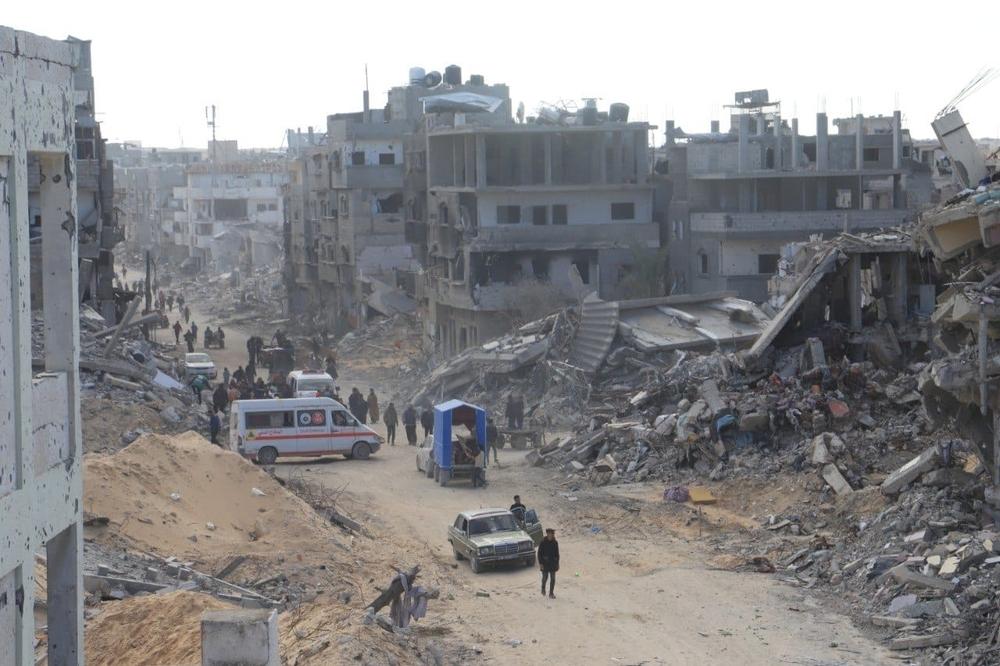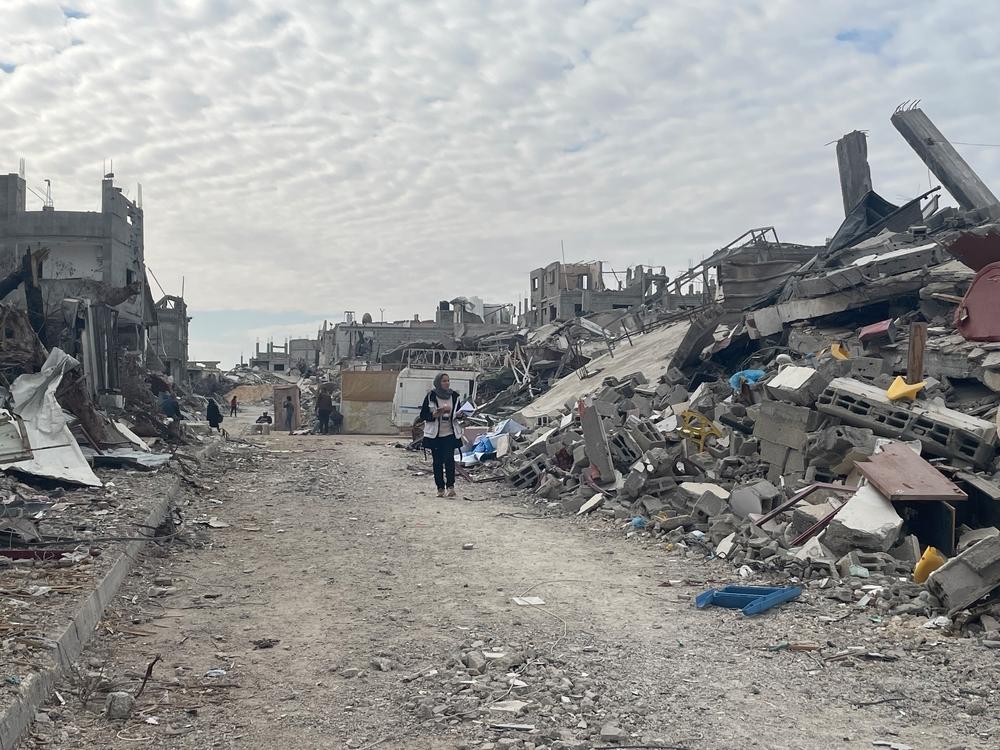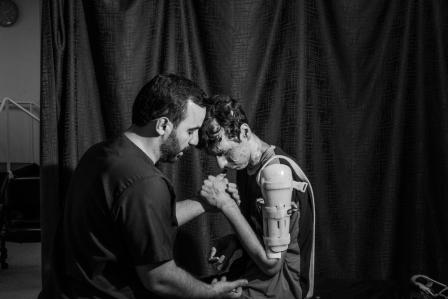Gaza: Destruction of life and homes leaves people unable to return safely in Rafah

Ambulance parked in Rafah city, southern Gaza. Palestinian Territories, January 2025. © MSF
After 15 months of Israel’s war on Gaza, Palestine, and the implementation of the ceasefire on 19 January 2025, displaced Palestinians are attempting to return home to the southern city of Rafah. According to the United Nations, near 70 percent of all structures in Gaza have been destroyed or damaged. (Source: OCHA) Doctors Without Borders / Médecins Sans Frontières (MSF) continues to call for an immediate massive scale-up of humanitarian aid.
“Health services, including the rest of humanitarian aid, and rebuilding of the city is needed for life to be able to come back to Rafah, but it’s still too dangerous for people to return in most areas,” says Doctors Without Borders Emergency Coordinator Support Pascale Coissard.
“As we were going to visit the former Doctors Without Borders Shabboura clinic in Rafah, we saw a child playing with a shell in Mawasi area. Although we cannot hear the bombs anymore, there are still dangers.”
People are trying to rebuild from the rubble. Rafah is destroyed, with homes, shops, streets and healthcare facilities in ruins and electricity and water systems damaged. The area is also unsafe due to scattered unexploded artillery in the remnants of buildings, which will take years to clean.

Doctors Without Borders Medical Coordinator Support walking through the ruins of Rafah city, southern Gaza. Palestinian Territories, January 2025. © MSF
In May 2024, Rafah had the largest concentration of displaced Palestinians in the Gaza Strip with an estimated 1.5 million people living in tents and makeshift shelters. In these inhumane conditions, people faced disease outbreaks, malnutrition, and the psychological impact of being forcibly displaced multiple times.
Doctors Without Borders teams working in Rafah had been providing basic healthcare and mental health support in the Shabboura clinic and supporting paediatric and maternity care in the Ministry of Health Emirati hospital but were forced to close activities and evacuate the area after continuous bombings and evacuations orders from Israeli forces. The looming threat of a ground invasion by Israeli forces materialised on 6 May 2024.
The military operations by Israeli forces led to the emptying of Rafah, mass destruction of the city, and to the closure of the Rafah crossing, which severely hindered the delivery of humanitarian aid into the entire Strip. Rafah was also the home to many Doctors Without Borders colleagues, who were forced to flee to other parts of the Gaza Strip.
“It’s extremely difficult to come back to the same place that used to be full of life,” explains Doctors Without Borders Medical Coordinator Support Nadia Abo Mallouh, who used to work in the Emirati hospital.
We couldn’t even recognise the streets where Emirati hospital was. It’s sad seeing the hospital that used to bring life to earth totally empty, no signs of life, everything is destroyed.Nadia Abo Mallouh, Medical Coord.
As a result of destroyed infrastructure, healthcare and other basic services are lacking. Many people are trying to return to Rafah but are unable to, as they find their homes destroyed – sometimes their neighbourhoods are unrecognizable. It will take a long time before people can safely return to Rafah.
“Honestly, the sights [of Rafah] were horrifying; so much destruction,” describes Doctors Without Borders watchman, Hadi Abo-Eneen, who was displaced from Rafah city in May 2024 and visited the area after the ceasefire.
“I kept walking, hoping to find something from my house. It was completely destroyed. It was a huge shock, because this was my whole life: my home. My family’s, wife’s and children’s memories are there. My belongings, clothes, dishes, my wedding memories: everything,” he continues.
In the meantime, people continue surviving in makeshift tents mainly in the coastal area of Mawasi. There, they have no proper shelter, nor access to food and water and limited access to healthcare services. At the same time, Palestinians in the north of Gaza are facing similar conditions, after the recent brutal Israeli military siege, which left the city completely destroyed.
Will you support our emergency response work?
Help us provide lifesaving medical care during emergencies by making a donation today.







